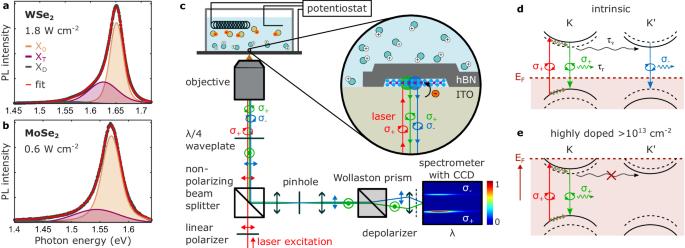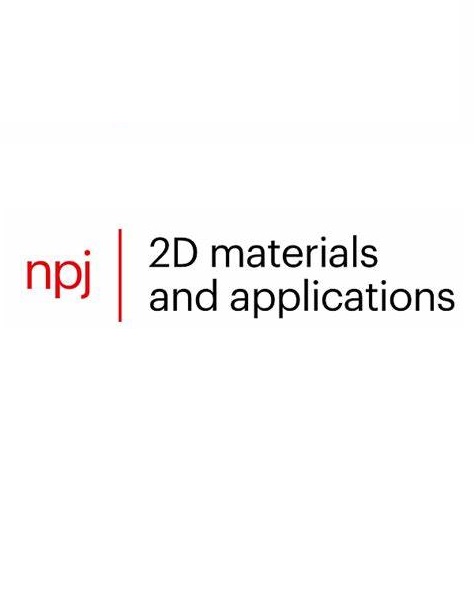诱导过渡金属二卤化物单层中激子发射的室温谷极化
IF 8.8
2区 材料科学
Q1 MATERIALS SCIENCE, MULTIDISCIPLINARY
引用次数: 0
摘要
过渡金属二卤化物(TMD)单层中的最低能态遵循谷选择规则,由于可以编码和处理量子信息,因此引起了人们的极大兴趣。然而,这些量子态受到与温度相关的间隙散射的强烈影响,导致完全的谷去极化,从而阻碍了室温下的实际应用。因此,要在 TMD 单层中实现清晰而稳健的谷极化,就需要抑制寄生去极化过程,而这正是谷电子学不断发展的核心挑战。在此,我们对 TMD 单层进行了电子掺杂实验,结果表明,在室温下,超过 1013 cm-2 的强掺杂水平可在二硒化钨和二硒化钼单层中分别产生 61% 和 37% 的山谷对比度。我们的研究结果表明,TMD 单层中的带电激子具有在 300 K 温度下开发高效峡谷电子器件的潜力。本文章由计算机程序翻译,如有差异,请以英文原文为准。

Inducing room-temperature valley polarization of excitonic emission in transition metal dichalcogenide monolayers
The lowest energy states in transition metal dichalcogenide (TMD) monolayers follow valley selection rules, which have attracted vast interest due to the possibility of encoding and processing of quantum information. However, these quantum states are strongly affected by temperature-dependent intervalley scattering leading to complete valley depolarization, which hampers practical applications at room temperature. Therefore, for achieving clear and robust valley polarization in TMD monolayers one needs to suppress parasitic depolarization processes, which is the central challenge in the growing field of valleytronics. Here, in electron-doping experiments on TMD monolayers, we show that strong doping levels beyond 1013 cm−2 can induce 61% and 37% valley contrast at room temperature in tungsten diselenide and molybdenum diselenide monolayers, respectively. Our findings demonstrate that charged excitons in TMD monolayers hold the potential for the development of efficient valleytronic devices functional at 300 K.
求助全文
通过发布文献求助,成功后即可免费获取论文全文。
去求助
来源期刊

npj 2D Materials and Applications
Engineering-Mechanics of Materials
CiteScore
14.50
自引率
2.10%
发文量
80
审稿时长
15 weeks
期刊介绍:
npj 2D Materials and Applications publishes papers on the fundamental behavior, synthesis, properties and applications of existing and emerging 2D materials. By selecting papers with the potential for impact, the journal aims to facilitate the transfer of the research of 2D materials into wide-ranging applications.
 求助内容:
求助内容: 应助结果提醒方式:
应助结果提醒方式:


